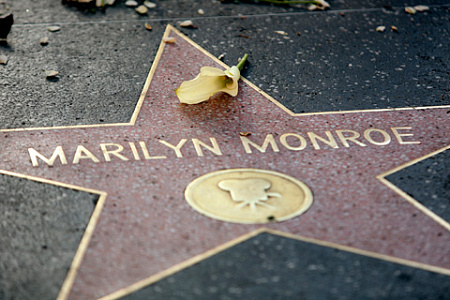
Despite a career short on major cinematic awards, Marilyn Monroe became more than an actress; she was a global phenomenon, a legend in her own time, and a myth that has only grown since her death. She was an icon whose image became synonymous with American glamour and desire, a potent form of cultural soft power exported worldwide during the Cold War.
Her ascent was a testament to sheer will. Initially a forgotten starlet, she clawed her way back through relentless work, battling a stammer and overcoming professional indifference. Hollywood was not a dream factory but a crucible. She worked tirelessly, driven by a deep desire to become not just a fleeting celebrity, but a true and lasting star.
Her breakthrough came with films like “Gentlemen Prefer Blondes” and “How to Marry a Millionaire.” The world embraced the persona she projected. A director once told her, “Don’t try to portray love. You are love itself.” She had transformed into the sex symbol of a generation, embodying a powerful vision of the American Dream that captivated millions far beyond U.S. borders.
Yet, the public image concealed a life of private turmoil. Her high-profile marriages, first to baseball hero Joe DiMaggio and then to playwright Arthur Miller, both ended in failure. The volatile relationship with DiMaggio, in particular, highlighted the clash between her public ownership and his private jealousy. Her life began to diverge sharply from her on-screen comedies; she craved a stability and love that remained perpetually out of reach.
Her search for connection led her into the most powerful and dangerous circles in America. In the early 1960s, Monroe reportedly began a clandestine affair with President John F. Kennedy. When the President abruptly ended the relationship, he allegedly passed her to his brother, Attorney General Robert F. Kennedy. This entanglement placed a volatile cultural icon at the nexus of political power, a secret liaison that carried immense personal and political risks for all involved.
Rejection from the heart of the American political dynasty seemed to precipitate a final, tragic decline. Her professional life stalled as she yearned for serious dramatic roles to escape the typecasting that had defined her. This frustration, coupled with personal heartbreak, led to a severe nervous breakdown and a stay in a psychiatric clinic. She felt profoundly misunderstood and isolated, a star burning out under the immense pressure of her own myth.
In August 1962, at the age of 36, Marilyn Monroe was found dead, the telephone receiver still clutched in her hand. The circumstances have fueled speculation for decades. She had longed to portray a great tragedy on screen, but instead, she enacted one in her own life. The ultimate irony is that the woman worshipped by millions as a goddess of love died alone, a global symbol of desire who never found the happiness she brought to so many.
